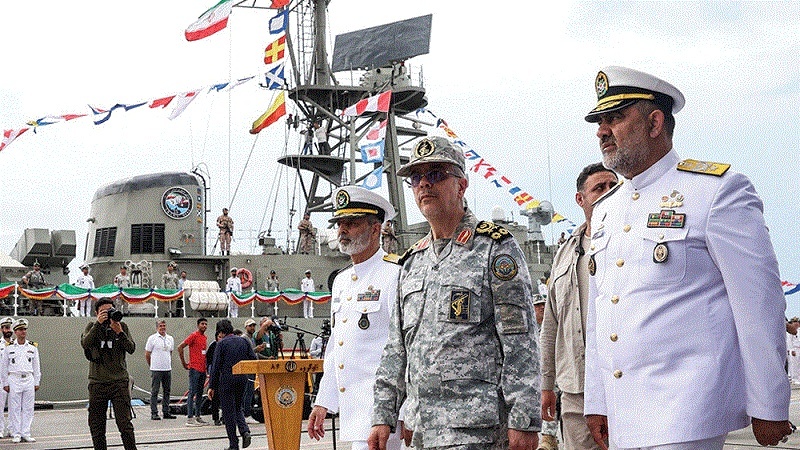The West's fear of independent countries benefiting from Iran's naval power
Pars Today - One of the points that has become most apparent in recent months amidst the escalation of regional tensions is that Iran has become a major naval power in the world. This is not favored by the domineering Western countries, but contrary to them, independent Asian, African, and Latin American countries will benefit from it.
The West Asian region has gone through turbulent days in recent months. In this regard, after the successful operation of Al-Aqsa Storm by the Hamas resistance movement, we witnessed the start of a major and devastating war by the occupying regime of Israel against the Gaza Strip. A war that has been going on for more than 6 months and has so far resulted in the martyrdom, injury, and disappearance of more than 100,000 Palestinians.
In the context of this war, various actors present in the Resistance Front in the region have acted in a coordinated manner to carry out attrition and ongoing operations against the Israeli occupiers and have tried to reduce the pressure and attacks of Israel on the Gaza Strip as much as possible. However, in recent days, we have also witnessed an escalation of tensions between Iran and the occupying Israeli regime.
The Zionists first carried out a terrorist attack on the consular section of the Iranian Embassy in Damascus, resulting in the martyrdom of several Iranian commanders and military advisers who had traveled to Syria at the official invitation of the Syrian government.
In response to this action, Iran explicitly stated that it would carry out a punitive operation against Israel. Iran carried out this operation in recent days under the name "True Promise," in which dozens of missiles and drones were launched from Iran towards the Occupied Territories.
Many analysts have called this operation the largest drone operation in the world, carrying strategic damage to the occupying Israeli regime. However, one of the points that has become most apparent in recent months amidst the escalation of regional tensions is that Iran has become a major naval power in the world.
This is a matter that has caused serious concerns for the United States, the Zionist regime, and two or three countries with a colonial history. In this regard, many analysts point out that Iran has been able to exercise considerable control over the strategic Strait of Hormuz in recent years. A strait that is one of the most important waterways and straits in the world in terms of energy transportation, with more than 60 percent of the world's energy reserves passing through it.
However, amidst the developments of recent months in the region, Iran's close ally, Yemen’s Ansatullah movement, has also shown significant capabilities in controlling the security equations of the Bab el-Mandeb Strait.
A strait that is also strategic, especially for the Israeli occupiers and Western European powers, and according to official statistics, more than 12 percent of the world's container trade traffic passes through it.
Now, the ability of Iran and its allies to oversee these strategic straits has raised concerns in the Western hegemonic camp, led by the United States, that Tehran is gaining effective and significant winning cards at the regional and global levels. Cards that could carry serious damage to Western hegemonic currents, while also being an advantage for non-colonial states and countries of the Global South, such as Asian, African, and Latin American countries.
MG/ME



